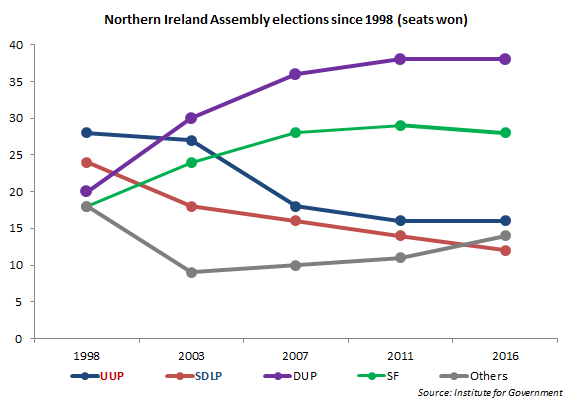What McGuinness' resignation means for NI power-sharing
Under Northern Ireland’s unique devolution arrangements, yesterday’s resignation of Deputy First Minister Martin McGuinness looks set to trigger an early election, and could have more serious implications for power-sharing government in Belfast, says Akash Paun.
